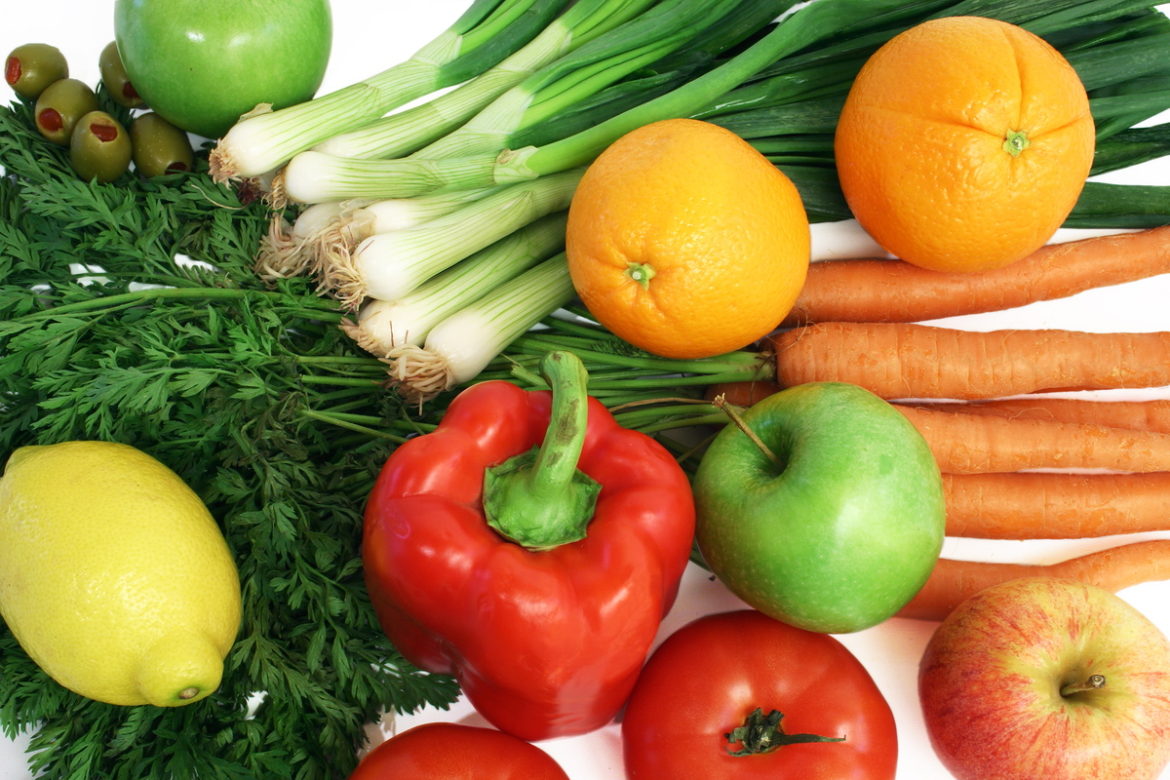We’ve all been told “you are what you eat”, but that’s not such great news after Christmas is it? How’s your body composition doing over there? 10 per cent turkey, 90 per cent Quality Street? Lots of us slip down the slippery slope during the festive season, especially in Bermuda where we’re so good at going all-out for celebrations. That’s one of the things I love about this country, but oh my God it gets us into trouble!
I’m not going to throw a book of statistics at you, but we all know our diabetes rate is sky-high across both sexes and within an increasingly younger demographic. Heart disease is the biggest killer of our women and cancers are significant too. The crazy thing about our disease incidence is that so much of it is preventable. Not only are we suffering through unnecessary pain and lifestyle limitations, but we’re bankrupting our economy too. Health insurance is cripplingly expensive, not because our domestic insurers are greedy, but because it has to be to cover the monumental number of claims. And if we lost health insurance benefits as we know them, because we ate too much KFC, drank too much soda, or didn’t get our veggies in, how frustrating would that be?
When you break it down to individual behaviours, you’d be right to say that something like “eating Cheetos” doesn’t translate to escalating healthcare premiums. But an accumulation of these behaviours does. And it’s rare for someone to eat a completely healthy diet with just a sprinkling of Cheetos on top, because junk food is addictive. Food manufacturers know that there’s a special ratio of ‘salt: sugar: fat’ that gets your brain wanting more. No wonder it’s hard to say no, and no wonder one cookie leads to another. After all, humans eat for pleasure (hedonic hunger) as well as for necessity (biological hunger) but that’s dangerous in an environment that’s riddled with cheap, easy and socially acceptable junk-food options.
I teach a six week optimum nutrition programme called Nutrifit. I wrote it to help people understand the basics (blood sugar balance, improving digestion, liver function and more …) but also to teach individuals how to navigate our current food environment. Lots of people need help figuring out how to succeed within an environment that’s currently set up for them to fail. And the main philosophy underpinning what I teach is simple. It’s to “choose food that nourishes you.” The idea is to remember that the food you eat is supposed to do a job for your body. The fuel you choose will very simply make every other aspect of your life harder, or it can make it easier. We make this point within our Beat the Couch running programme as well; when you’re trying to get fit, healthy eating will give you energy and support injury recovery, whereas eating junk makes you feel lethargic and inhibits healing.
Of course, all this comes close to the concept of “You are what you eat.” And do I believe in that? Absolutely. But in order for “you are what you eat” to be really useful, it’s worth taking a closer look. Here are some things to consider:
You are what you eat, but more specifically what you digest and absorb.
Good digestion is critical for optimum health. A healthy balance of gut flora and a good supply of enzymes help to break down your food without discomfort and improve your absorption of nutrients. A diet of sugary, processed junk (and caffeine/alcohol) can inhibit enzyme function and also trigger dysbiosis (an imbalance) within your gut flora. Commonly that would lead to fatigue, bloating and bathroom issues as well as compromising your immune system. As an aside, if your digestive system is compromised for any reason (maybe you’re ill, going through treatment or have some allergies flaring up) then although raw food generally contains more nutrients, your body might more readily absorb them when they are gently cooked.
You are what you eat, but how you prepare it matters too
Did you know that if you boil broccoli for longer than five minutes you’ll have up to a 77% nutrient loss? So if anyone tries to make you eat soggy vegetables you’ve got the perfect excuse to refuse them now. I wish I had known that at school! The best way to prep your veg is to steam it, even if you are cooking it from frozen. Cooking vegetables within dishes (soups and curries etc) is fine so long as the dishes are simmering rather than boiling. Roasted veg is good too, just try to do it over a lower heat for longer, than a higher heat for a faster period of time. In addition, some foods benefit from special preparation in order for you to maximise your nutrient exposure. For example, the heart healthy properties of garlic are more readily available when you crush the clove before chopping it.
You are what you eat, but you are what you eat eats too
Do you follow me? What I mean is that you get much better nutrition from animals (and animal products) that have been fed a healthy diet vs a factory-farmed diet. For example, much of chronic disease is linked to omega 3 deficiency, but more specifically, to a really high ratio of omega 6 intake compared to our omega 3 intake. Grass-fed cows carry a lot of omega 3, but factory farmed cows (which are fed a diet of soy and corn) carry much more omega 6. That affects the ratio of the fats you absorb through eating meat and dairy. So if you can, choose grass-fed, organic beef and dairy.
You are what you eat, especially if you exercise
Many people think that if they exercise off the junk, that what they eat doesn’t matter. It actually couldn’t be further from the truth. Exercise, especially intense exercise, whilst being great for your body strength and cardiovascular fitness, also generates a fair amount of free radical activity in your system. Left unchecked that can contribute to accelerated ageing and other types of cellular damage. But the good news is that eating lots of fruit and vegetables helps to cram your diet with the antioxidants that help to neutralise free radical activity. So there’s no excuse not to exercise, you just have to eat well too!
So that’s it! You are definitely what you eat, but it’s a little more complicated than that! To learn more, join me in the clinic, for Nutrifit or for the next Season of Beat the Couch. Season 11 starts February 22 — early bird information, pricing and registration is online now! All details at www.natural.bm
 The advice given in this article is not intended to replace medical advice, but to complement it. Always consult your GP if you have any health concerns. Catherine Burns BA Hons, Dip ION is the Managing Director of Natural Ltd and a fully qualified Nutritional Therapist trained by the Institute for Optimum Nutrition in the UK Please note that she is not a Registered Dietitian. For details regarding consultancy, Nutrifit and Beat the Couch, please go to www.natural.bm or call 296-6609. Join Catherine on Facebook: www.facebook.com/nutrifitandnaturalnutritionbermuda.
The advice given in this article is not intended to replace medical advice, but to complement it. Always consult your GP if you have any health concerns. Catherine Burns BA Hons, Dip ION is the Managing Director of Natural Ltd and a fully qualified Nutritional Therapist trained by the Institute for Optimum Nutrition in the UK Please note that she is not a Registered Dietitian. For details regarding consultancy, Nutrifit and Beat the Couch, please go to www.natural.bm or call 296-6609. Join Catherine on Facebook: www.facebook.com/nutrifitandnaturalnutritionbermuda.

